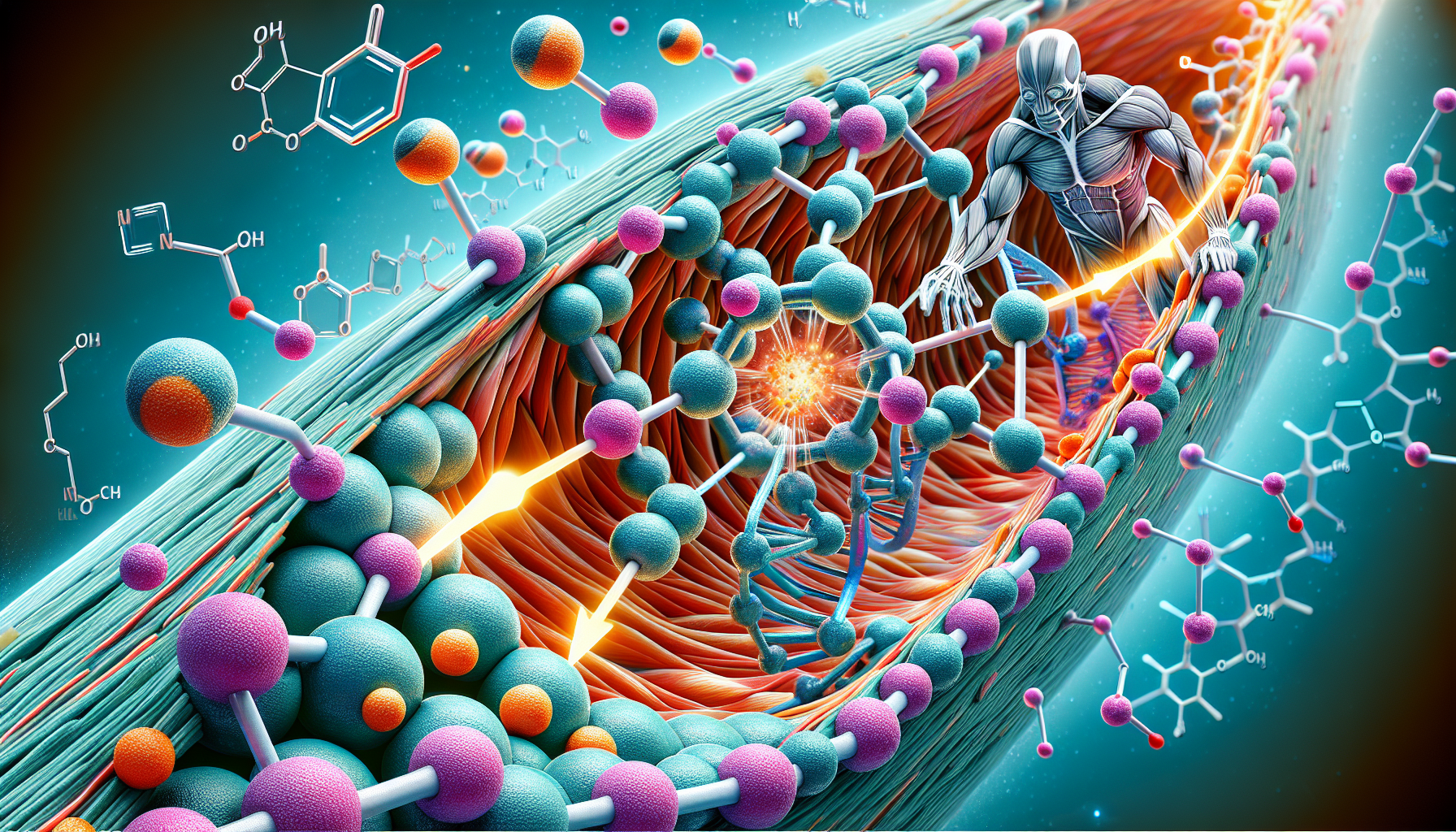Supplements for Hypertrophy Training
Hypertrophy training is the premier method for those seeking to bulk up their muscles and enhance their strength. Reaching muscular failure is crucial in hypertrophy training to stimulate muscle growth. But where do supplements fit into this equation? This insightful journey into the realm of hypertrophy training, coupled with judicious supplementation, will equip you with the wisdom to boost your workout outcomes.
Key Takeaways
Protein, specifically whey protein, is crucial for muscle hypertrophy, providing the necessary amino acids for muscle recovery, growth, and strength enhancement.
Creatine monohydrate is an effective supplement for increasing muscle mass, exercise performance, and cognitive function, with minimal timing concerns for consumption.
BCAAs may offer benefits in reducing muscle soreness and supplementing low-protein diets, but their advantage may be muted with adequate overall protein intake.
A Doctor's Insight on Protein and Supplements for Hypertrophy Training
Within the discipline of hypertrophy training, one is often confronted with the essential question: "Which supplements are optimal for my goals?" As a medical professional, I have integrated the expertise of respected authorities such as Peter Attia, MD, and Layne Norton, Ph.D., to provide an educational guide on the pivotal supplements that support the pursuit of muscle hypertrophy.
This educational compendium is designed to impart knowledge necessary for achieving substantial muscle growth, ensuring that your gains are the product of informed decisions and expert recommendations.
Understanding Hypertrophy: The Path to Muscle Growth

Envision each muscle fiber as a bustling city, where the skyline is defined by strength and muscle volume. The expansion of this metropolis is orchestrated by skeletal muscle hypertrophy, a complex biological process that requires more than occasional workouts. It demands a meticulously crafted regimen of resistance training, where the total volume lifted is just one aspect of the muscle-building symphony. The number of repetitions and the weight’s intensity play pivotal roles in this physiological concert, each adding their distinct tone to the melody of muscle growth. Pushing muscles to the brink of fatigue is often a critical element in a thoughtfully structured hypertrophy training program, essential to stimulate muscle growth and reach your muscle development objectives.
It’s akin to a delicate dance, where the cadence of weightlifting and the intensity of each muscle contraction provide the groundwork for myofibrillar hypertrophy—the actual essence of muscle growth, targeting a variety of muscle groups.
The Importance of Protein in Muscle Protein Synthesis
Protein, the building block of muscle, is the fuel that powers the engines of hypertrophy. It’s not merely a nutrient; it’s the cornerstone of muscle protein synthesis, the process that repairs and rebuilds the fibers torn asunder by the rigor of training, and helps to promote muscle growth.
For those who find the array of protein-rich foods inadequate, protein shakes provide a haven, ensuring the precarious equilibrium between muscle protein breakdown and synthesis leans towards growth.
Whey Protein

Enter whey protein, the heavyweight champion of the supplement world. Its prowess is not unearned; packed with leucine and essential amino acids, it stands as a titan among proteins, championing the cause of:
muscle growth
muscle recovery
increased strength
improved athletic performance
For many, it’s the magic potion that turns an ordinary workout into a muscle monument, a tribute to the power of superior supplementation.
Source and Quality
Derived from the modest cow’s milk, whey protein stands victorious in the field of muscle protein synthesis research, outperforming even the respected egg protein. The process of its creation, where fats and caseins are whisked away, leaves behind a protein that’s not just high-quality but highly bioavailable, a testament to its ability to fuel skeletal muscle growth.
Recommended Brands
When it comes to selecting your whey protein champion, brands like Outwork Nutrition, Legion, and Optimum Nutrition stand atop the podium, their banners unfurled in the winds of quality and responsible sourcing. With these giants, you march into the gym equipped with the best, abandoning any brands hidden in the fog of proprietary blends and nitrogen spiking.
Branched-Chain Amino Acids (BCAAs)

Amidst the cacophony of supplement advice, the role of BCAAs often strikes a discordant note. Do they herald an advantage, or are they simply an echo in the chamber of adequate protein intake? The truth lies in their ability to soothe the muscle soreness that follows the storm of a workout, a potential boon for those whose diets whisper, rather than shout, the language of high-quality protein,.
Creatine Monohydrate
Creatine monohydrate, the quiet titan, slips into the routine of the hypertrophy trainee, bringing a promise of:
strength
lean body mass Its role is clear, its benefits, undeniable; a daily choral of five grams can orchestrate an increase in:
muscle mass
exercise performance all the while enhancing cognitive function—a virtuoso of versatility in the world of supplements.
Recommended Brands
In the pursuit of purity, the discerning eye turns to brands that do away with the extraneous, those that present creatine monohydrate in its unadorned glory. These are the brands that eschew the fanfare of extravagant claims, focusing instead on the provision of a supplement that stands firm on the foundation of efficacy.
Timing of Creatine Intake
The passage of time has little influence over the effectiveness of creatine, although the post-workout period may be slightly more receptive to its benefits. It’s here, in the hush of recovery, that creatine can be consumed with minimal risk of the gut’s ire, a subtle nuance in the grand tapestry of supplementation timing.
Nitric Oxide Boosters
The alchemists of performance enhancement have long whispered of the power of nitric oxide boosters, potions like beetroot juice and citrulline malate that cast a spell of increased endurance and power. It’s in their embrace that blood vessels dilate and blood pressure yields, paving the way for nutrients to flood the muscle, each rep becoming a strike that carves deeper into the stone of hypertrophy.
Intra-Workout Nutrition
The clock of intra-workout nutrition often ticks unnecessarily, as the length and intensity of a standard session don’t require this mid-performance repast. Save this ritual for the endurance athlete or the warrior facing the gauntlet of multiple daily training sessions with rest periods in between.
For the rest, a well-timed symphony of daily carbohydrates and proteins suffices to manage metabolic stress.
Training for Muscle Hypertrophy
Muscle hypertrophy, the increase in muscle mass and size, is a primary goal for many fitness enthusiasts. Achieving this requires a well-structured resistance training program that combines proper exercise selection, intensity, volume, and frequency. By understanding and implementing effective training strategies, you can maximize your muscle growth and reach your fitness goals.
Effective Training Strategies
To stimulate muscle hypertrophy, it’s crucial to focus on exercises that engage multiple muscle groups simultaneously. Compound movements like squats, deadlifts, and bench presses are particularly effective because they recruit a large number of muscle fibers, leading to significant muscle growth. These exercises should form the cornerstone of your training regimen.
In addition to compound exercises, incorporating isolation exercises can help target specific muscle groups, ensuring balanced development and promoting overall muscle growth. For example, bicep curls and tricep extensions can be used to focus on arm muscles, complementing the broader work done by compound movements.
Progressive overload is another key principle in hypertrophy training. This involves gradually increasing the weight or resistance used in your exercises to continually challenge your muscles. Aim to increase the weight by 2.5-5 pounds every two weeks, or whenever you feel capable of lifting more. This consistent progression is essential for stimulating muscle growth and preventing plateaus.
Role of Supplements in Training
While supplements are not a necessity for muscle hypertrophy, they can play a supportive role in enhancing muscle growth and recovery. Protein powders, such as whey protein, provide a convenient source of high-quality protein that can help meet your daily protein requirements. Creatine is another popular supplement that can boost strength and lean muscle mass, making it easier to lift heavier weights and achieve progressive overload.
HMB (beta-hydroxy beta-methylbutyrate) is also worth considering, as it can help reduce muscle breakdown and support recovery. However, it’s important to remember that supplements should complement a healthy diet and consistent training routine, not replace them. Prioritize whole foods and balanced nutrition to provide the foundation for your muscle-building efforts.
Recovery and Rest
Recovery and rest are critical components of any hypertrophy training program. When you’re not lifting weights, your muscles are repairing and growing. Adequate rest and recovery allow your muscles to rebuild stronger, leading to increased muscle growth over time.
Importance of Recovery in Muscle Growth
Recovery is essential for muscle growth because it allows your muscles to repair and rebuild after the stress of resistance training. During your workouts, muscle fibers experience tiny tears, and the recovery process is when these fibers are repaired and strengthened. This process, known as muscle protein synthesis (MPS), is crucial for achieving muscle hypertrophy.
Rest periods between training sessions are also vital. Aim for 48-72 hours of rest between workouts targeting the same muscle group to ensure adequate recovery. This rest period allows your muscles to fully repair and grow, reducing the risk of overtraining and injury.
Muscle protein synthesis is further supported by adequate protein intake. Consuming high-quality protein sources throughout the day helps maintain a positive protein balance, promoting muscle repair and growth. Aim for a protein intake of 1.6-2.2 grams per kilogram of body weight per day to optimize muscle protein synthesis.
Metabolic stress, caused by intense exercise, also plays a role in muscle growth. This stress triggers a cascade of cellular responses that contribute to muscle hypertrophy. Ensuring adequate rest and recovery helps your muscles adapt to this stress, leading to increased muscle size and strength.
In conclusion, a successful hypertrophy training program combines effective training strategies with proper recovery and nutrition. By focusing on compound and isolation exercises, progressive overload, and supporting your efforts with appropriate supplements, you can achieve significant muscle growth. Remember, rest and recovery are just as important as the time spent in the gym, so prioritize them to maximize your muscle-building potential.
Summary
As the curtain falls on our exploration of the supplements that underpin the hypertrophy odyssey, a few truths shine brightly. Quality reigns supreme, whether in the form of whey protein or the unassuming creatine monohydrate. The timing of intake, while not the maestro of muscle growth, can enhance the overall performance. And above all, the individual’s needs, tolerances, and goals must be the compass guiding the selection of these nutritional allies,.
Frequently Asked Questions
Can I achieve muscle growth without supplements?
Yes, you can achieve muscle growth without supplements by focusing on a balanced diet and a consistent exercise routine. Adding supplements like whey protein and creatine can enhance muscle protein synthesis and performance, but they are not necessary for building muscle.
Is it necessary to take BCAAs if I'm already consuming enough protein?
It's not necessary to take BCAAs if you're already consuming enough protein through your diet, as BCAAs may offer additional benefits but are generally not essential for meeting protein requirements.
Which form of creatine is most effective for muscle hypertrophy?
Creatine monohydrate is the most effective form for muscle hypertrophy, as it has been extensively researched and proven to increase lean body mass and strength.
Do nitric oxide boosters actually improve performance?
Yes, nitric oxide boosters can enhance exercise performance by increasing blood nitrate levels and delivering more nutrients to muscles during workouts. Try incorporating beetroot juice or citrulline malate into your routine for potential performance improvement.
Is intra-workout nutrition essential for hypertrophy?
Intra-workout nutrition is not essential for hypertrophy unless you're doing long or intense workouts, or multiple training sessions in a day. Consider your specific workout needs before incorporating intra-workout nutrition.




